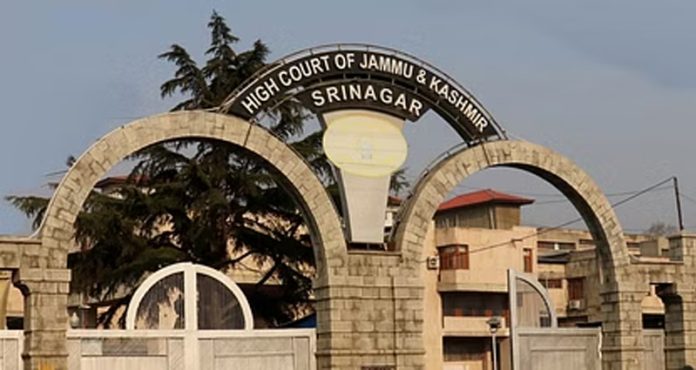Excelsior Correspondent
Srinagar, Dec 28: High Court has directed that any person in possession of Government land without valid agreement cannot be held to be an authorized occupant and cannot claim its legal protection.
Justice Sanjay Dhar has recorded that individuals occupying premises gratuitously cannot claim ownership rights or legal protection on the ground that he is a prolonged possessor of land.
These observations have been made while deciding a case filed by a small-scale unit holder seeking protection from interfering with a plot in his possession at Industrial Estate Zainakote, Srinagar.
M/s M R Industries, a small-scale industrial unit, approached the High Court challenging an order passed by the Additional District Judge, Srinagar whereby his plea was rejected so far as preventing the authorities from interfering with its occupation on the additional plot in question.
In the initial proceedings, the plaintiff (M/s M. R. Industries) sought a temporary injunction against the respondents, preventing them from interfering with its occupation of Plot No. 63-C at Industrial Estate Zainakote, Srinagar.
Justice Sanjay Dhar clarified that the protection can only be granted or extended to a person who has a valid subsisting rent agreement, lease agreement or license agreement in his favour. ”…a person holding a premises gratuitously and whose initial entry in the premises is questionable, would not acquire any right or interest in the property and even long possession in that capacity would be of no legal consequence”, read the judgment.
The case of the unit holder before the court was that he was initially granted a lease for two kanals of land through a lease deed. Subsequently, it claimed to have been tacitly permitted to use an adjacent plot for additional activities, asserting that it paid ground rent for the same.
The appellant repeatedly sought formal allotment of the adjacent plot, which the respondents denied, stating that the plot was migrant property and alleging that the appellant-unit holder had encroached upon it. He approached the court below and the matter has been assigned to the Additional District Judge who dismissed the application for a temporary injunction upon the respondents for not to interfere in his possession of additional plot, citing ongoing litigation concerning the property in the High Court, where a stay order had been issued.
The appellant challenged the order passed by the court below before the High Court, arguing that it was in settled possession of the additional plot and entitled to protection from eviction without due process under law.
Since there was no reply filed by the respondents before the court below in opposition to the plea of the unit holder and the unit holder submitted the court below could not have rejected his application as there was no objection on behalf of the respondents in opposition to his interim injunction.
Justice Dhar however clarified that the lack of a written response (objections) did not automatically validate the appellant’s claims and that the trial court was duty-bound to analyze the averments and evidence to determine whether a prima facie case existed.
“…it does not absolve the trial Court from analyzing from the averments made in the plaint/case of the unit holder and the documents annexed thereto, as to whether there is a prima facie case in his favour. In the absence of a written statement it cannot be assumed that the averments made in the plaint are admitted by the defendants”, the court said.


